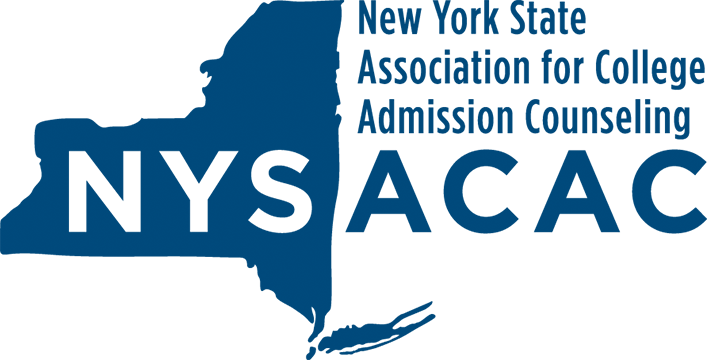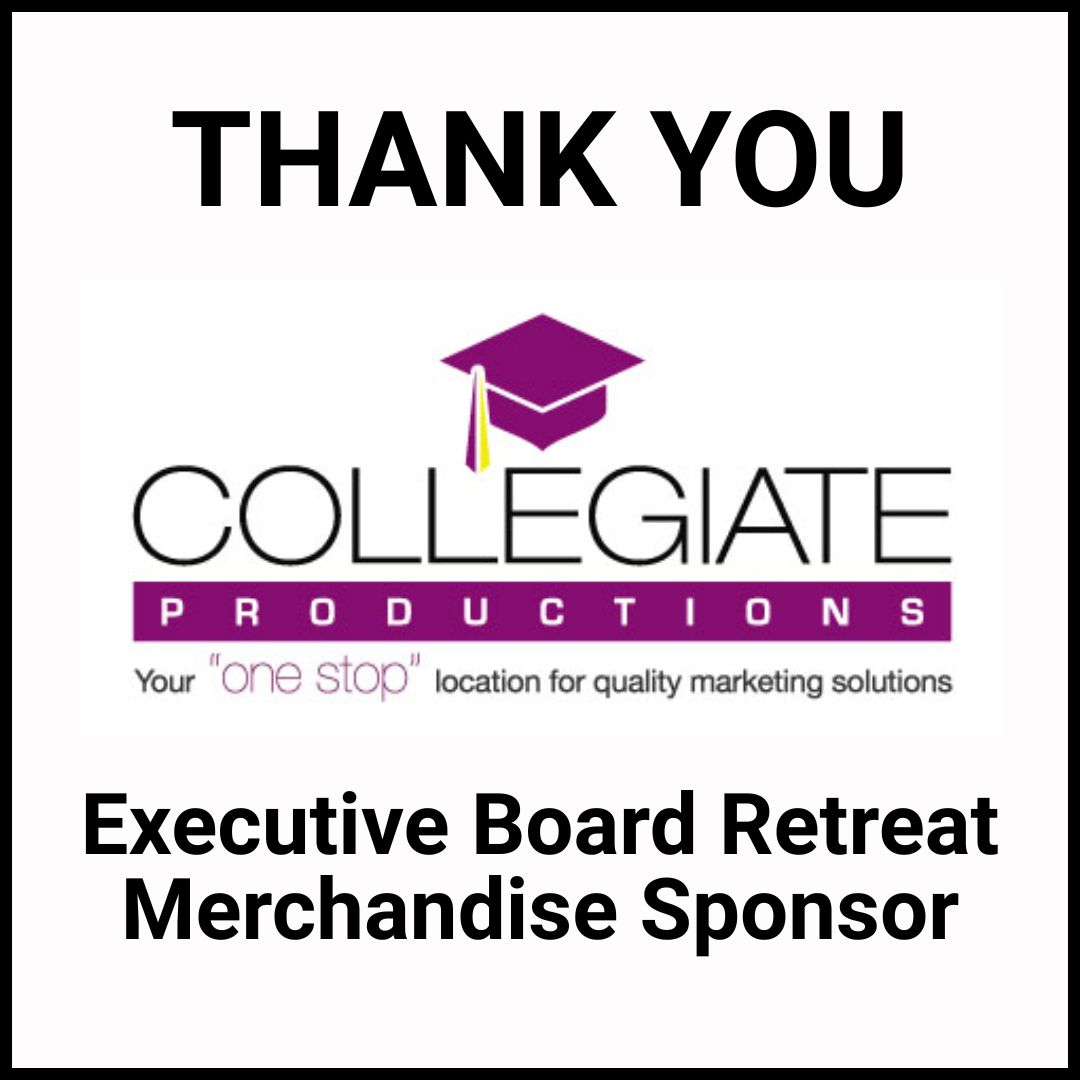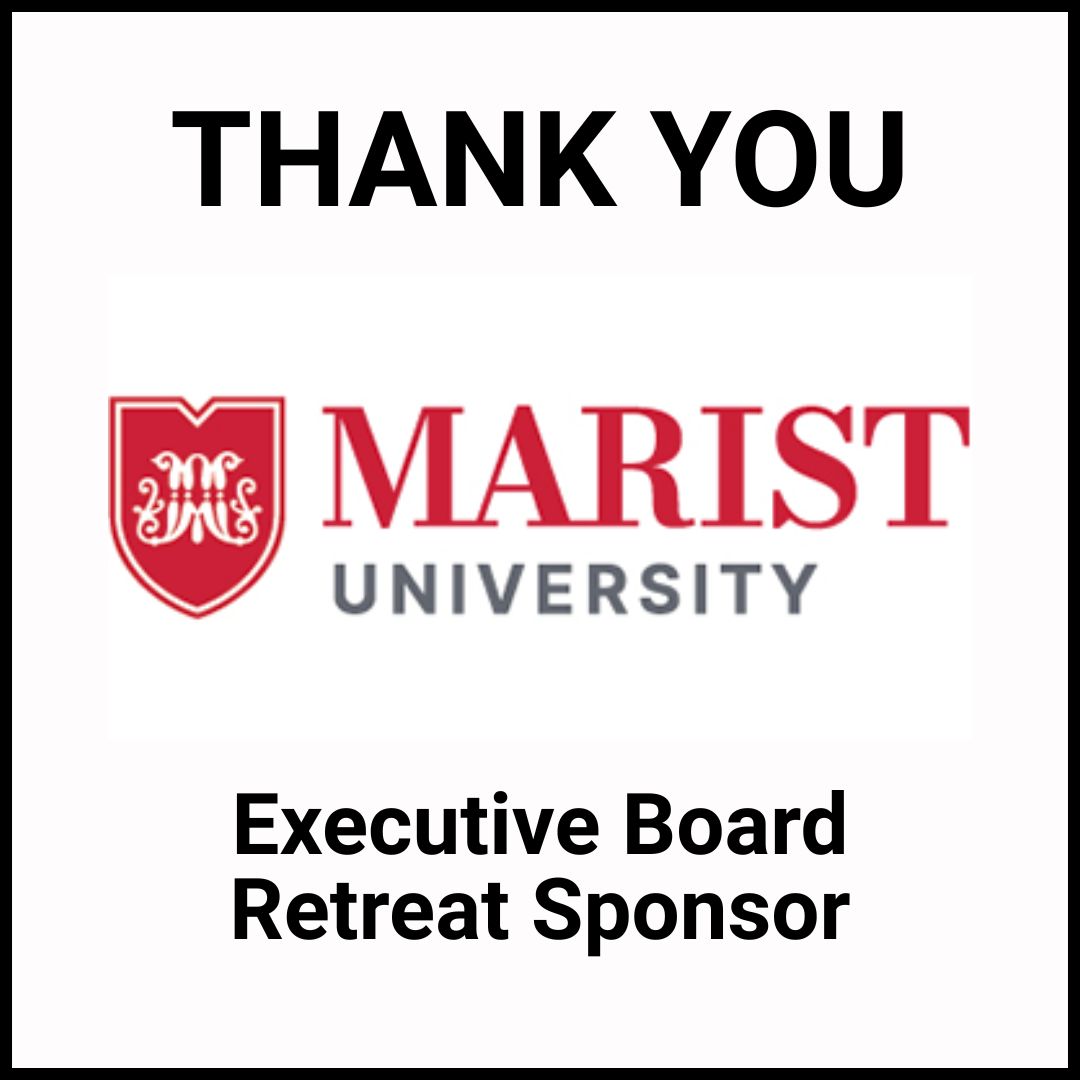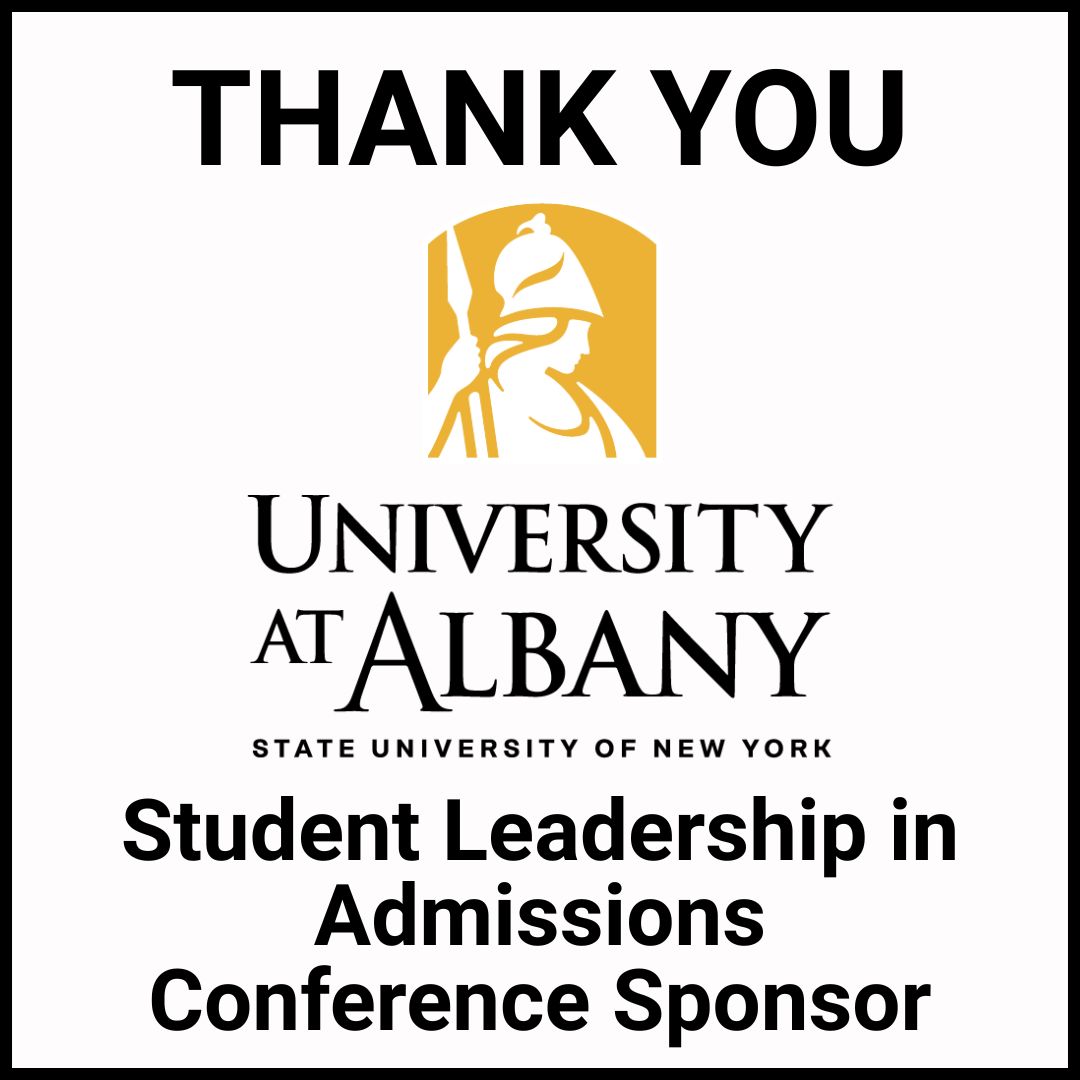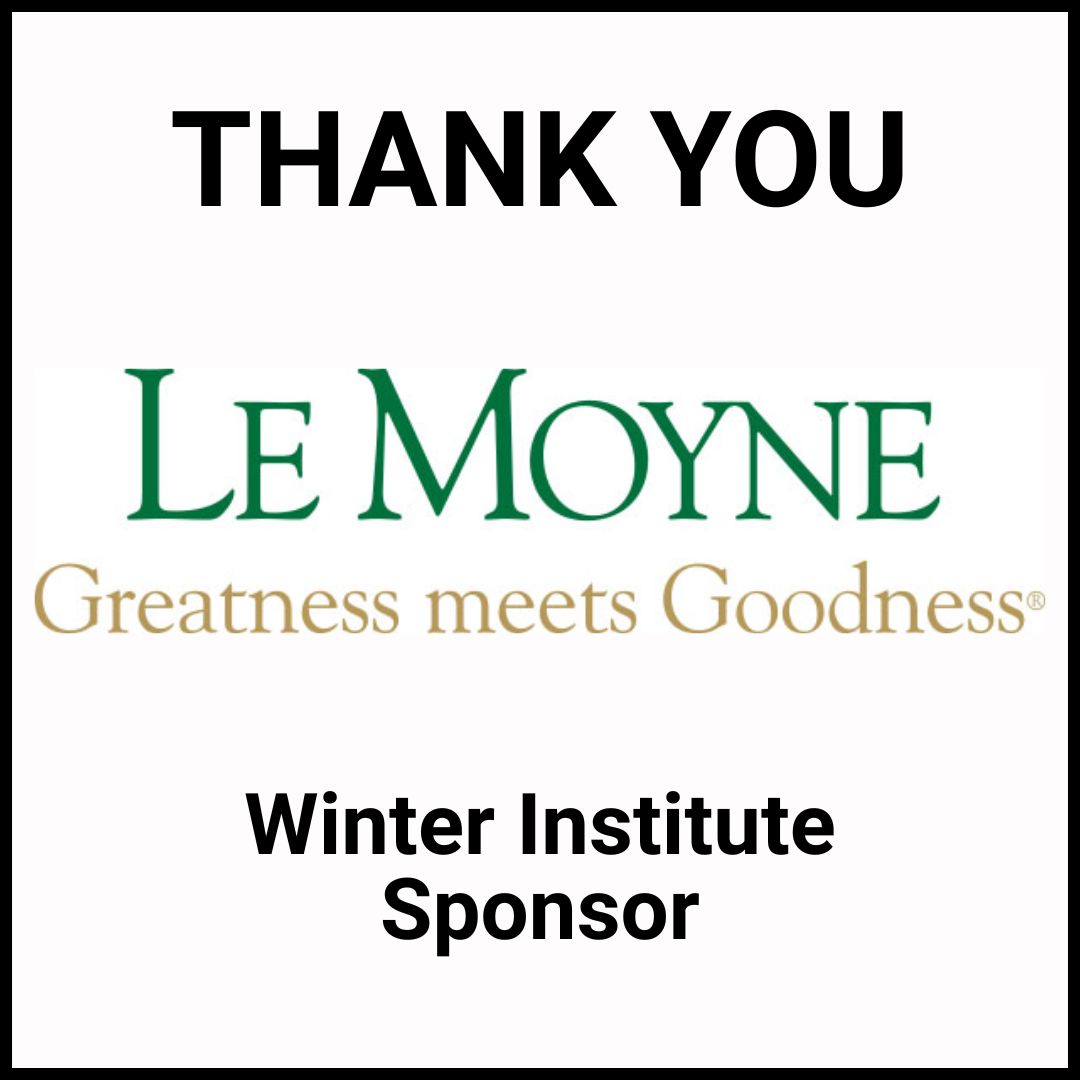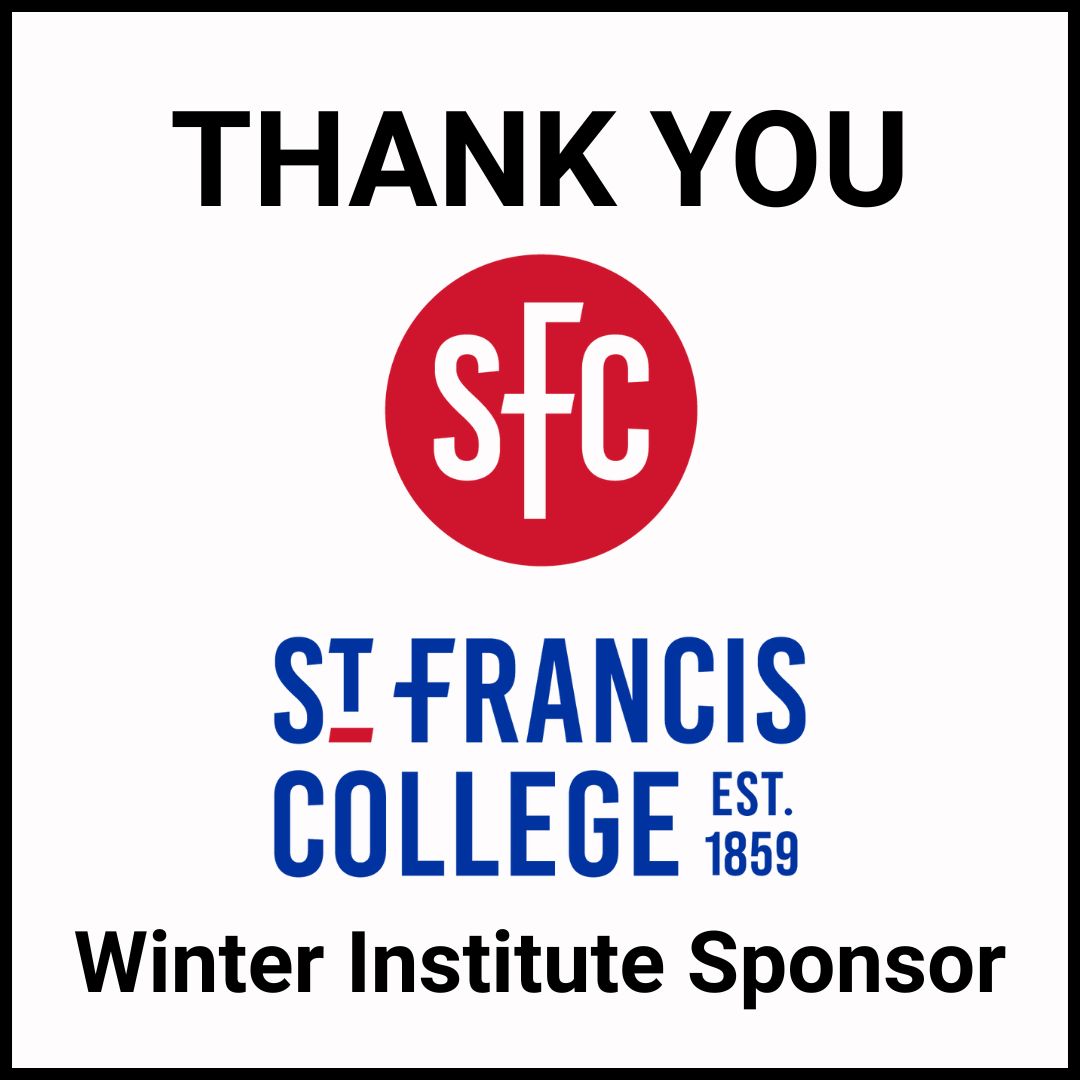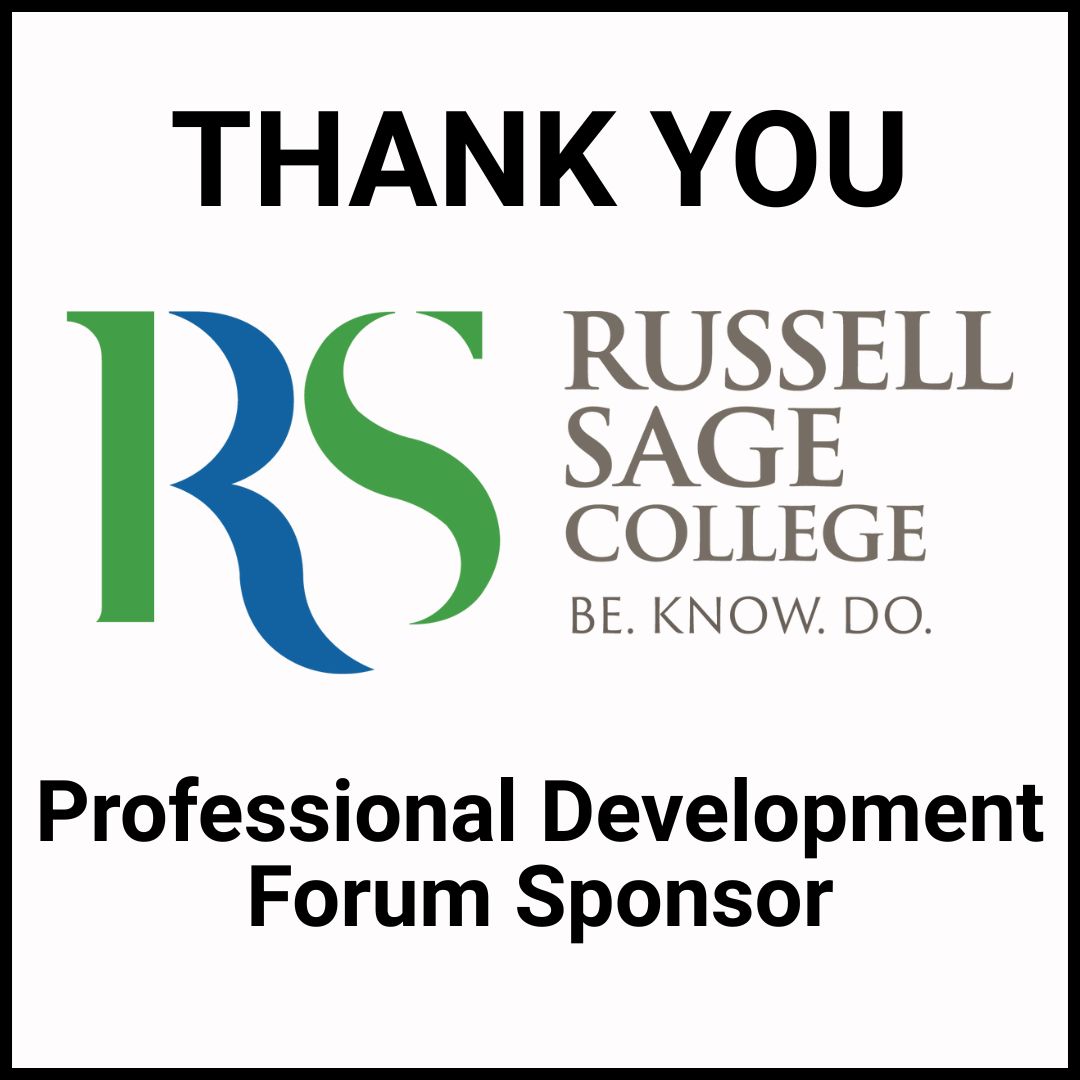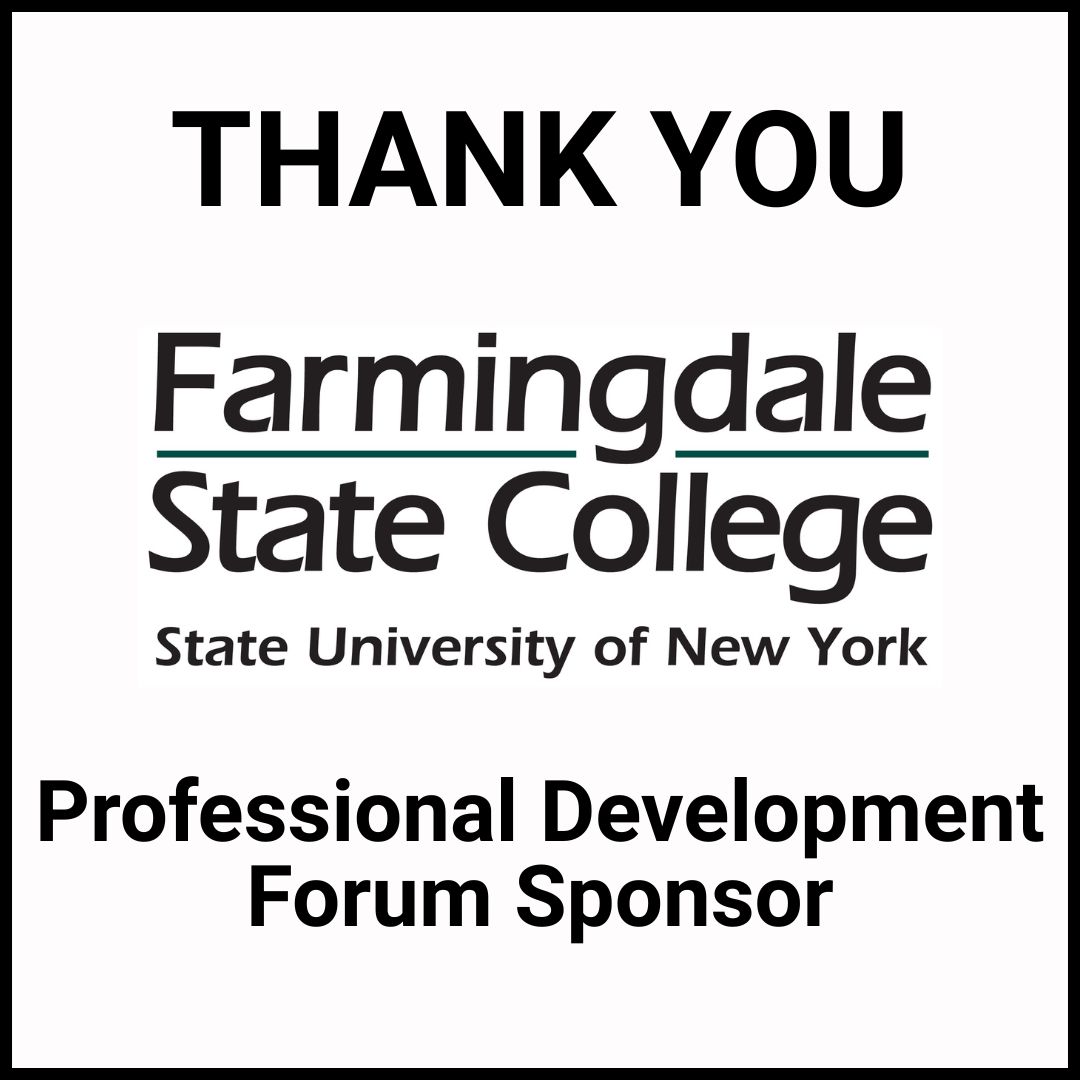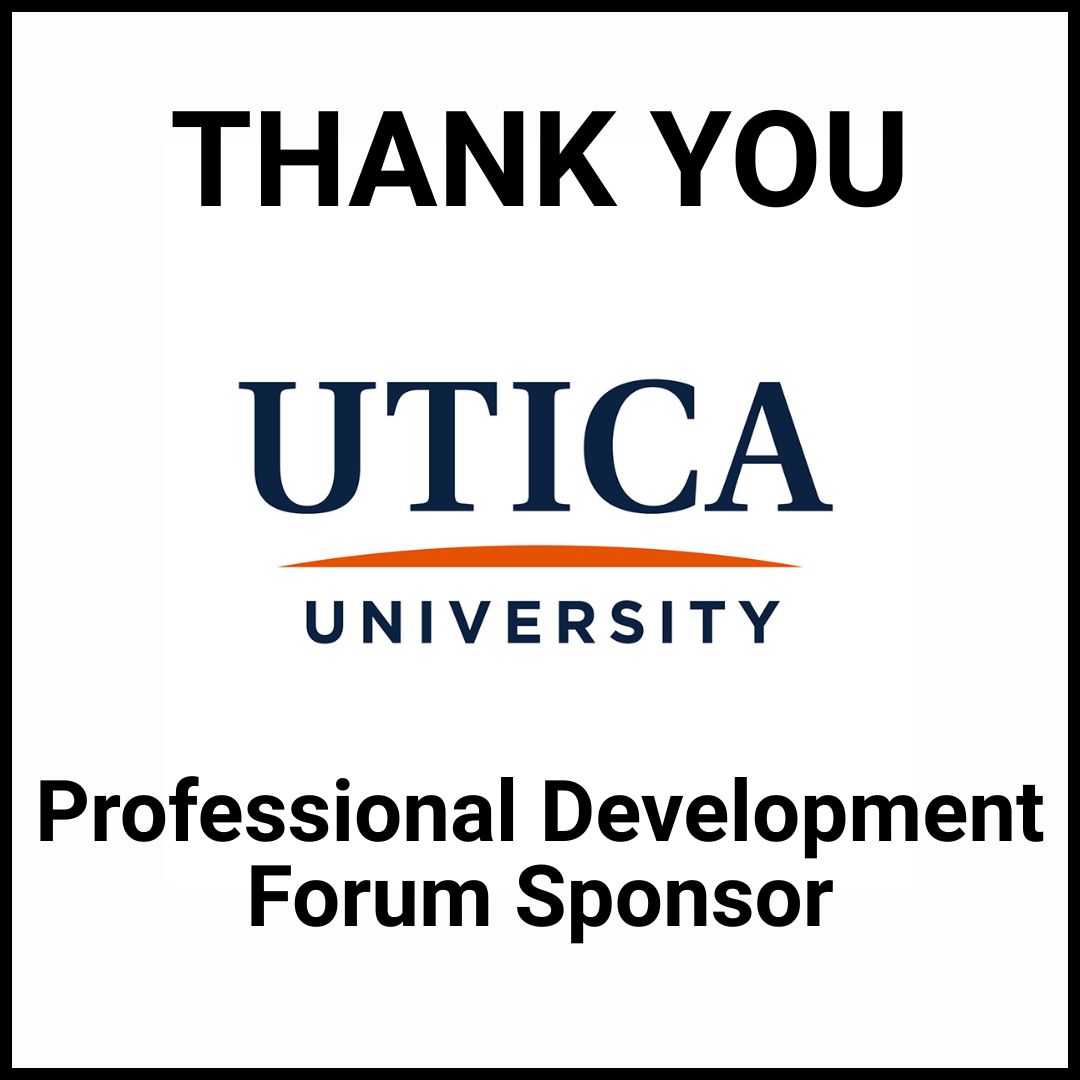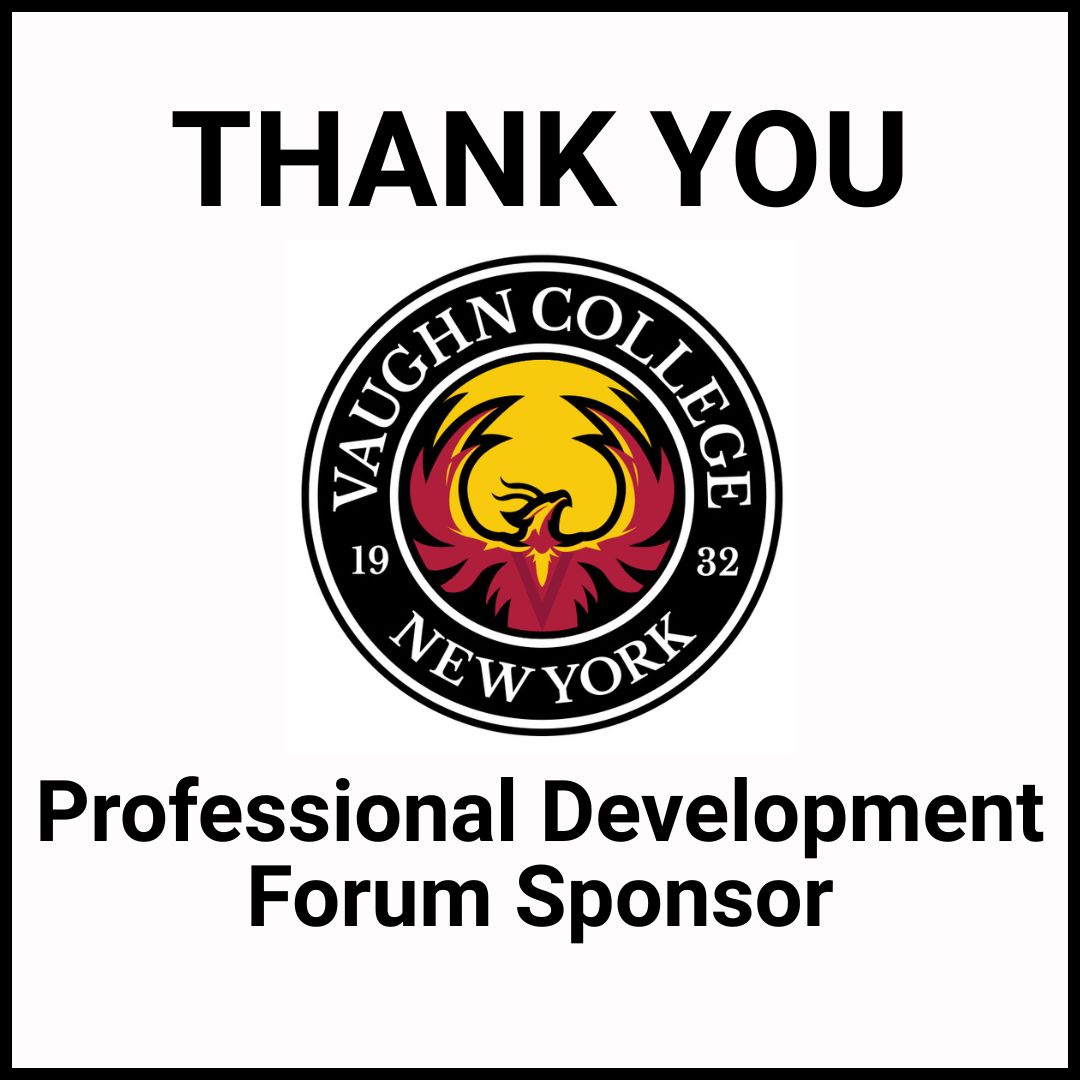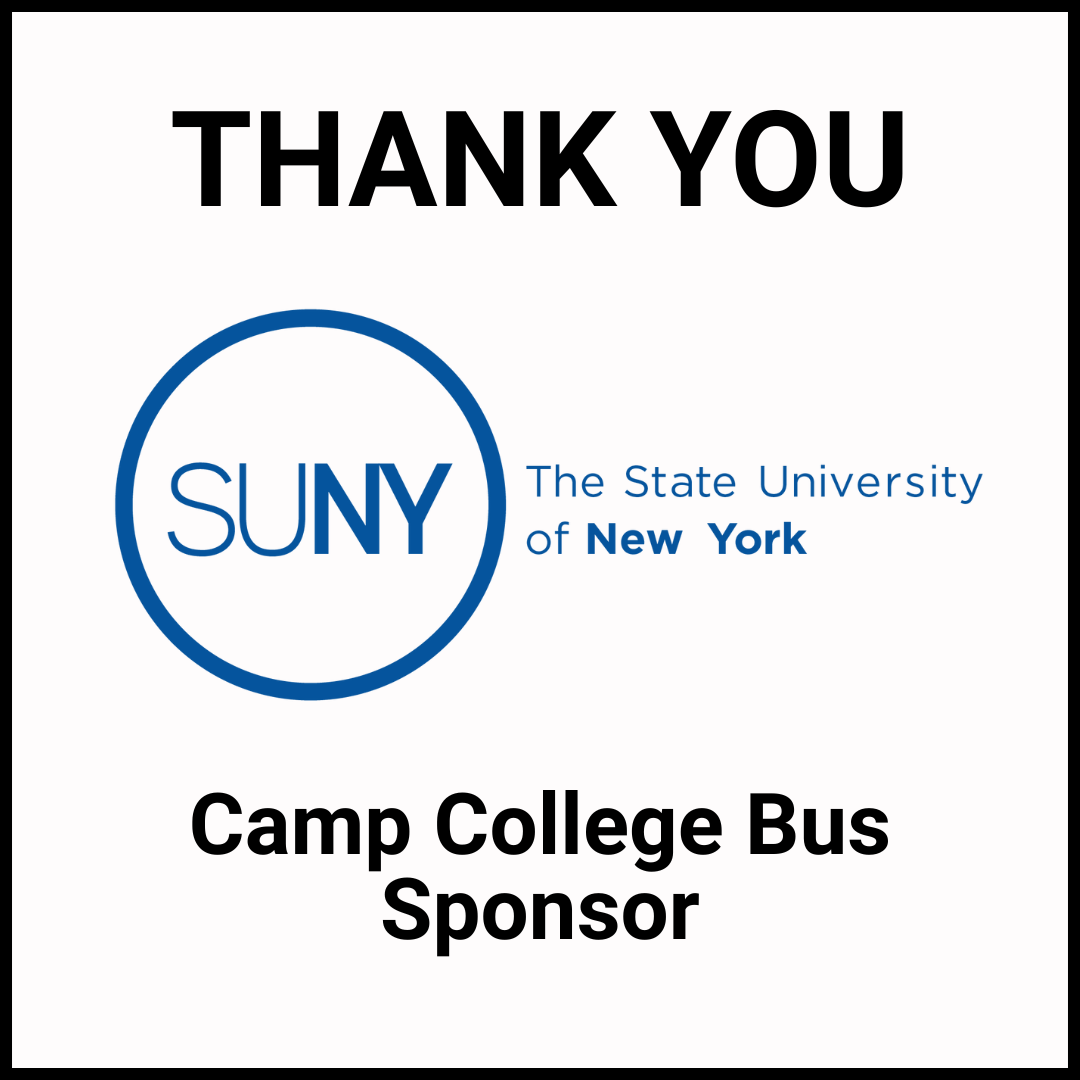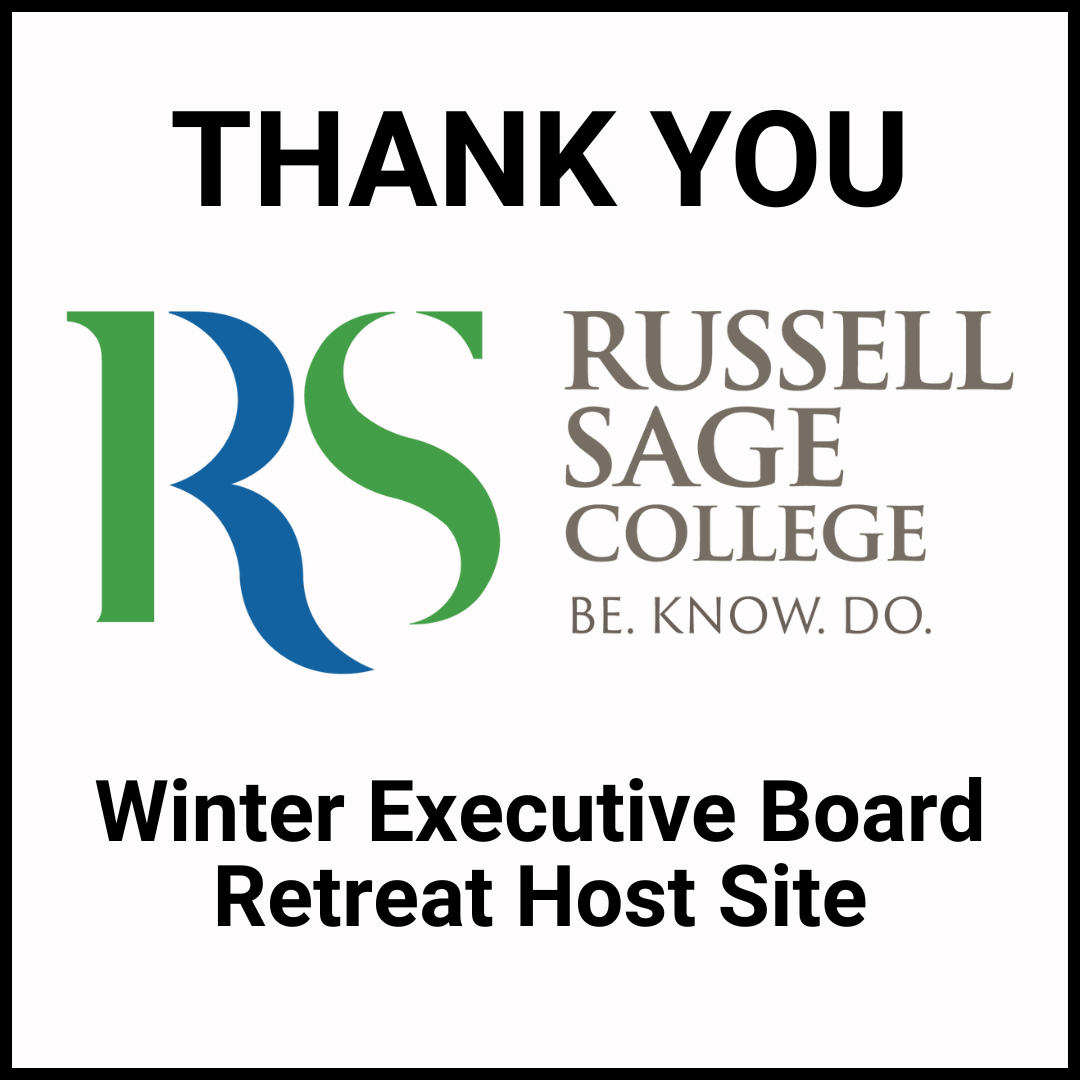- Home
- About
- News
- Government Relations
- Professional Development
- Community Outreach
- Donate
- Membership
|
Stephanie Espina, NYSACAC President With the school year well underway, and knowing what a busy time this is for all sides of the desk, I’d like to first thank you for your dedication to supporting students and playing a pivotal role in their college-bound journey. I was fortunate to attend the National Association for College Admission Counseling (NACAC) conference in Louisville, Kentucky last month. For us, this conference was a big one. After this critical vote, there were many mixed emotions and feelings of uncertainty. How will the NACAC vote impact a student’s college search experience? How can this vote benefit or disadvantage students in the process? How will our colleges and universities behave and how far will they go? I trust that all of you will proceed thoughtfully in the absence of accountability and will keep students' best interests in mind and heart. I encourage you to read NACAC President Jayne Fonash’s full message that is included in this newsletter issue. Aside from the vote, there were great moments and takeaways during our time in Louisville. I felt proud of NYSACAC’s representation at the conference, and our involvement at the national level. We currently have several NYSACAC members who share their talents and serve on NACAC board committees. We also had several others formally present and lend their expertise. This year, we were especially proud to celebrate NACAC’s Rising Star Award, presented to our very own Rob Kaercher, College and Career Counselor from Byron-Bergen Jr./Sr. High School in Western New York. With 300+ in attendance at our General Membership Meeting, NYSACAC was well represented and we are grateful to have spent that time together. Thank you for your continued interest and support of NYSACAC. As our Executive Board and committee members work towards moving this association forward, your feedback is always welcome. Feel free to email me at [email protected] to discuss future opportunities and ideas. Enjoy reading through this issue of the NYSACAC Newsletter and I wish you all a wonderful fall season! All the best,
Stephanie Espina President, NYSACAC Marissa Guijarro, NYSACAC President-Elect Join us for the 23rd Annual Coming Together Conference, June 2 - 3, and the 42nd Annual NYSACAC Annual Conference, June 3 - 5, at Manhattanville College in Purchase, New York! The Manhattanville College team and the NYSACAC Steering Committee are planning for an engaging conference to offer networking, education, and professional rejuvenation! Here is a quick glimpse of what you can expect:
I encourage you to promote the conference within your professional networks as well as through your social networks by sharing our conference logo and using the hashtag #NYSACAC2020. Also, consider becoming a formal conference partner by sponsoring a conference grant or conference event – for more information, please send an inquiry to [email protected].
I look forward to welcoming you to Manhattanville in June!
Kind regards, Marissa Guijarro NYSACAC President-Elect Chair of the 2020 Conference Steering Committee An Important Message from NYSACAC Stephanie Espina, President Cassie Magesis, Immediate Past President & Chief Delegate
As you are likely aware, the NACAC assembly delegates and members passed a number of important measures on Saturday, September 28th. Below is an overview from NACAC President, Jayne Fonash, sent to NACAC members that we want to share with you. We encourage you to review the message in its entirety as well as review the specific changes that were affected within the CEPP.
We trust that all of you will proceed thoughtfully and keep students' best interests in mind and heart. We will weather this challenging time together.
***** Last week’s conference was a benchmarking event. As I move into my presidency, I wanted to ensure all members understand the outcomes and the challenges ahead.
While important work is done each year through our educational sessions, governance meetings, and other events, this year’s conference was especially significant. We asked for your support and trust as we took steps to bring this phase of the Department of Justice (DOJ) inquiry into our Code of Ethics and Professional Practices to a close, and you responded affirmatively. Our Annual Membership Meeting drew some of the largest participation numbers in association history, with more than 1,400 members taking part in the meeting through in-person and proxy voting.
I know the votes weren’t easy ones to cast. But I, like you, am optimistic that they will help our board of directors proceed appropriately with the next phase of the DOJ investigation. As we chart a new path forward, I wanted to provide an update on the results and offer some preliminary guidance.
At the Assembly and Annual Membership Meeting:
In the days and weeks ahead, NACAC will provide further information and advice to help you respond to questions you may receive from the media, the public, or colleagues and department heads at your school or university.
Right now, we advise:
More detailed advice on how the Assembly and membership votes will affect your students, as well as the institutions you serve, will soon be available. We’ve resumed our discussions with the DOJ and we hope to resolve the investigation as swiftly as possible.
In the meantime, I want to thank you once again for your support. I believe that, with these votes, the association has demonstrated good faith in our effort to comply with the department’s investigation. I am also confident that NACAC can and will remain a champion for the ethical practice of college admission and a steadfast advocate for protecting students in their transition to higher education.
Sincerely yours,
Jayne Caflin Fonash NACAC President Event Calendar and Important Dates October October 13, 2019: New York City STEM College and Career Fair @ Jacob K. Javits Convention Center October 21, 2019: NYSACAC 2018 Fall Regional College Fair @ St. Joseph’s College, Brooklyn November November 12, 2019: New York City Performing and Visual Arts College Fair @ Jacob K. Javits Convention Center
December December 9, 2019: NYSACAC Executive Board Meeting @ The College of Saint Rose
January January 10, 2020:Winter Institute @ Utica College (more details below) January 17, 2020: Winter Institute NYC @ Syracuse University's Lubin House (NYC) (more details below)
February February 10, 2020: NYSACAC Executive Board Meeting @ The College of Saint Rose February 11, 2020: Legislative Advocacy Day
March March 15-16, 2020: Rochester National College Fair @ Rochester Riverside Convention Center March 16-17, 2020: Syracuse National College Fair @ SRC Arena Onondaga Community College March 18-19, 2020: Buffalo National College Fair @ Buffalo Niagara Convention Center April April 22, 2020: NYSACAC Executive Board Meeting @ Manhattanville College April 26, 2020: New York National College Fair @ Jacob K. Javits Convention Center
June June 2-5, 2020: 42nd Annual Conference & 23rd Annual Coming Together Conference @ Manhattanville College NYSACAC Receives $125,000 Grant from Gates Foundation
Earlier this year, the Bill and Melinda Gates Foundation reached out to the NYSACAC presidential team to propose an opportunity. During initial discussions they concluded that our organization could lead efforts on the collaboration of decision makers for the development of state-wide educational attainment targets as well as raise more awareness of transfer student success. Backed with the support of the Executive Board, we went through an extensive grant proposal process in the months that followed. After multiple revisions, the proposal was submitted in August. Just two days before the General Membership Meeting at NACAC we were given the exciting news from Gates that we would definitely be awarded the grant, making NYSACAC the first affiliate to engage in this work.
We have a significant amount of work ahead of us, and we invite you to be apart of this journey. If you would like to get involved, please email [email protected]. Stay tuned for additional communication and information in the coming weeks.
Save-the-date for NYSACAC’s annual Winter Institute! Utica College New York City: Syracuse University’s Lubin House
This opportunity for the newest admissions professionals to learn about best practices, share relevant ideas, and establish networks is not to be missed! Registration will be available soon! For questions and inquiries, please email [email protected]. We look forward to meeting you in January! Winter Institute Committee Lisa Searle Ithaca College & Joseph Fantozzi Hunter College
My Experience as a Summer Institute Mentor Angela Herrera Canfield, Director of Admissions, ILR School, Cornell University Having served as a NYSACAC Summer Institute mentor for the last three years, I have always been unexpectedly moved by how each cohort of participants has impacted me. Being a mentor has been an incredibly rewarding experience for several reasons. Of course, there are the participants – a mix of admissions counselors, high school counselors, and CBO counselors who are often new to the profession or new to their role who bring with them a sense of openness and excitement. The participants are incredibly open to learning, hearing from the “seasoned professionals,” actively engaging in conversations and presentations, and they ask great questions! My fellow mentors also bring with them different perspectives on the field. They know how to work with and motivate staff, they know recruitment, and have counseling experience. I also enjoy learning about their own personal journeys. And, of course, there is the Skidmore campus. Skidmore opens its doors to us. Everyone is friendly, welcoming, and takes pride in hosting Summer Institute. I think there are very few opportunities for this type of close-knit learning. I hope that others take this mini-preview as a call to send your new counselors and admissions officers to Summer Institute, or perhaps, offer yourself as a potential mentor, and reflect on how your own journey can help others who are just starting out. Erik Johnson, Assistant Director of College Counseling at The Stony Brook School
Exactly one week ago, I was sitting in the First Timer’s Orientation at the 2019 NACAC Conference, next to a counselor from Chicago who was my number match. She was the first of six matches I had managed to find throughout the NACAC conference (but resulting in no prize from the drawing I consequently entered six times!). I had an excellent latte in hand, obtained at a little independent espresso bar a block from Louisville’s convention center, and Chris Loo, my school’s Director of College Counseling, was on stage, being interviewed about what we newbies should know to get the most out of NACAC. “That’s my boss!” I whispered proudly to my “meet your match” buddy.
On stage, Chris shared a story about how helpful she has always found her fellow NACAC participants, providing an example of how at her first NACAC conference five years ago, someone she had gotten to know at one of the big, noisy evening receptions offered to guide her back to her hotel when she was ready to leave. We were floored later that day when, at an evening reception sponsored by Revolution Prep, we were joined by someone who looked at Chris and said, “Do I know you?” It was Justin, Chris’s courteous guide from four years ago!
Throughout NACAC, I thought about how fortunate I was to attend NACAC as part of a team, the college counseling department at The Stony Brook School. I arrived under the guidance of Chris who has worked hard to get involved in NACAC, and in the company of Jesse Struck, our Associate Director. Throughout the conference, I reflected on the many first timers I met who arrived alone, like Tony, an intrepid college counselor from a Brooklyn charter school that Jesse and I met at the CACNY/CANNY evening reception. In many ways, The Stony Brook School is a very different school than Tony’s charter school--we are a private boarding and day school in suburban Long Island. Nevertheless, it was heartening to hear from Tony about his challenges and hopes, and to realize that although we do not work in a charter school in Brooklyn, we share with Tony the same hopes, concerns, and dreams for our students. And we found some common ground with Tony in sharing how we each had helped advise our respective students who qualify for programs like Questbridge. So although Tony was attending the conference alone, he was not alone. Chris’s reunion with Justin and my talk with Jesse and Tony were just two small examples of the almost magical solidarity that I found at NACAC. Despite the turbulence of our times, again and again I encountered hope and courage and optimism, and I think much of this I attribute to the warmth and generosity of the people I met. The feeling of community was palpable. That feeling of community was palpable at the NYSACAC meeting at NACAC, as we listened to Elise Rodriguez offer some behind the scenes insights of the national committee on the urgent matter of the DOJ investigation. And as Ms. Rodriguez offered NYSACAC a few good-humored apologies on behalf of the national committee on the surprising irrelevance of this year’s keynote speaker, the feeling of community was palpable again. It was apparent NACAC is led by genuine and well-intentioned people, reacting gracefully and honestly when things don’t quite go as planned. My last night at NACAC, Friday night, I found myself at the NCCAA (National Catholic Colleges Admissions Association) reception. I was told that this was the “Taylor Swift” event of NACAC receptions, and as I picked up my personalized reception ticket at the NCCAA table in the Exhibition Hall, I realized that I was fortunate to have Chris reminding me to RSVP early to these events. The NCCAA reception was held in the Muhammed Ali Center, an impressive modern building offering a fourth floor event space with two balconies overlooking the Ohio River. The serene balcony view of the solemn river provided a strong counterpoint to the sight of a jubilant throng of NACACers getting down with the hired cover-band. Loud and proud, this band could work a crowd, including coaxing three contestants up on stage for a competitive cowbell-off, all to the tune of Wild Cherry’s “Play That Funky Music.” It WAS funky, and I found myself thinking, what if the students could see this? Was I one of the valiant revelers who closed out the night with this exuberant live band? Alas, I was not. The wise words of the orientation panel had stuck with me: “NACAC can be overwhelming; sometimes you just need to take a break.” And I am glad I did. Aided by a solid night’s sleep and another crafted local latte, I was alert and ready for my last NACAC topical session: a presentation on leveraging financial aid that was, in its own quietly informative way, every bit as rocking as Friday’s night’s party. I was really grateful for the wisdom shared by these Saturday morning presenters, including two presenters from NYSACAC’s own Brooklyn Poly Prep. I am tempted to say that I saved the best for last, but that would not do justice to the many outstanding opportunities I had throughout the conference. So, here is one NACAC newbie who says thank you to everyone who worked to make the conference special, and also thank you to everyone I met who gifted me with a welcoming conversation. Thank You to David Steinberg from the Scholarship Committee! The Scholarship Committee
During our NYSACAC Affiliate Meeting at the NACAC Conference in Louisville, we held our annual 50/50 raffle. This year, the proceeds went to the Scholarship Committee. The total amount of ticket sales was $1000 - $500 for scholarship and $500 for the lucky raffle winner. That lucky winner was David Steinberg of The Heschel School in NY, NY. This generously giving soul donated all of his winnings back to the scholarship! NYSACAC is proud to award scholarships each year to deserving students attending a NYSACAC member institution. David, your selflessness is deeply appreciated! Kevin Hooker joined Lycoming College as an admissions counselor on August 1st. He is the son of NYSACAC past president Scott Hooker and Livonia Senior High School counselor Peggy Hooker. Costas Solomou joined SUNY Geneseo in August as the vice president for enrollment management. Prior to joining Geneseo, Solomou served as dean of undergraduate admissions and orientation at The George Washington (GW) University. He previously served as dean of admissions at Queens University of Charlotte, NC, and led undergraduate admissions activities at the University of Rochester. Solomou serves on the College Board Middle States Regional Council and the Hispanic Scholarship Fund, which empowers Latino families to successfully complete a higher education degree. He is also a member of the Potomac and Chesapeake Association for College Admissions Counseling Government Relations Committee.
Christie Smith Christie Smith joined the Geneseo Admissions Office in January 2019 in a newly redefined role as associate director. Christie also works closely with our Access Opportunity Programs and admissions processes. Prior to joining the Geneseo community, Smith served as assistant director of admissions at Monroe Community College; admissions counselor at SUNY Oswego; assistant director at the Rochester Center for Community Leadership, University of Rochester; and community engagement and service leadership at Hobart and William Smith Colleges.
Ashley Scott Ashley Scott joined the Geneseo Admissions office in February 2019 as an admissions counselor responsible for recruiting in the North Country and Capital region. Prior to joining Geneseo, she worked at the University at Buffalo as an admissions counselor.
Madelyn Rossi Madelyn Rossi, joined the Geneseo admissions team as an admissions counselor responsible for recruiting and yielding first-year students in the Finger Lakes region. She is a recent Geneseo alumna.
Sabr Sabrina Bramwell joined the Geneseo admissions team as a full-time regionally based admissions counselor responsible for recruiting students from the Bronx and Manhattan regions in New York City. She is a recent Geneseo alumna.
Dennis Vasquez, Associate Director, The CollegeBound Initiative and Student Leadership Network Hi my fellow NYSACACers. Here we are jumping into another school year. I can honestly say that I am more positive, hopeful and focused this September. I hope you are feeling the same way. If you are not, create a goal for yourself! Unlike many others, I actually don’t care about New Year’s Eve resolutions. Although the calendar dictates it, starting new in January doesn’t make sense to me. I like the idea of completing work after the school year has ended, when I have (or believe to have) done my best for my organization as an Associate Director. During the year, working with staff, principals, students; developing my team; analyzing data and reports; running around to several schools scattered in New York City which often requires long commutes on the subway or bus - I spend time in between trying to plan vacations with my family during the breaks, especially in the summer. There’s a great feeling when you’ve had inspiration to travel somewhere far, save the money for it, truly enjoy the experience, and plan for the next one. This was one of my goals, but after much thought, I needed more out of my life. Read on. Our jobs have so many goals that we often lose sight of our personal ones. Think about our schedules - we grind mostly Monday through Friday with limited time after work or on weekends. We spend what free time we have taking care of chores, resting, being with family, managing our bills - all important things, so much that they are automatic. I have had so many lingering goals that I’ve decided to really put them into action this year and be creative in the ways I could actually fit them in my schedule. Whether it would be learning a new language, studying art or creating a photobook (hence the photo part of this article - a project to capture my adventures in New York City to be published one day), taking up a new sport, researching retirement plans, reconnecting with old friends - I’ve realized that the only way to make these things happen is to treat goals like the way they are treated at work. When there’s a work goal, there has to be a plan. There has to be a schedule. There has to be some tracking mechanism to measure progress. There has to be some celebratory “finish line” when that goal is accomplished. I challenge all of you to think deeply about this and come up with a goal you’ve been thinking about and create a plan to make it happen. It will give more meaning to your day and essentially give you a reason to focus more on your job. Your job and personal life are connected. They both help nourish one another. We are in the business of helping students reach their full potential. Isn’t it time we remembered helping ourselves also? Happy “goaling” everyone and best wishes for the 2019-2020 school year. Reflections on Summer Institute from the College Side E. Tyler Boyle, Hamilton College, Summer Institute Cohort of 2019 I remember in high school, my assistant principal sitting down with me and saying, “There are three types of knowledge: the things you know you know; the things you know you don’t know; and the things you don’t know you don’t know.” It became obvious that the most dangerous type of knowledge were the things one doesn’t know they don’t know. Having just graduated from a small, liberal arts college in New York and now working at another small, liberal arts college in New York, I feel like I know the small, liberal arts institutions well. However, in starting my new job—the first professional job I’ve held—the number of acronyms thrown at me and the different types of institutions that were being discussed in the conference room of our former fraternity house turned Office of Admission were nothing short of a reminder that there was a lot of things I didn’t know that I didn’t know. When my colleague informed me that I was going to be attending the NYSACAC Summer Institute—affectionately called Rookie Camp; I was excited to be able to expand my knowledge base and cross off some of those things I didn’t know that I didn’t know. Upon arrival at the Summer Institute; I was immediately enthralled with the people at the conference and the reason that they were there. Some had signed up on their own volition to learn more about the variety of options for their students, some were told they were to attend this conference by their boss, and some came from a long tradition of attending the Summer Institute and couldn’t miss out on karaoke night. Either way, it seemed that everyone was there to learn, to connect, and to be part of the NYSACAC community. On the first night, I remember sitting at my assigned dinner table next to someone from an institution that I knew a lot about, sitting next to two people from universities I had never heard of, and sitting across from someone from a community-based organization in Brooklyn that I knew nothing about. The conversation at that table started with our own personal journeys, starting with the why and how of becoming part of the college access field. It quickly shifted to what our personal goals were for the week, and for our professional lives overall. From this conversation, I was reminded of the fact that this job—in all of its forms—is human-centric that focuses on the individual journeys of everyone we work with: from our colleagues to the students who apply, to the organizations that allow us to share our time with them and their students. After this introduction; the week shifted to focusing on the field and some of the things we may encounter through our first few years. From a session on implicit bias to a session on counseling first generation college students, to a session on athletics and the admission process, I gained valuable information that provided greater context for where the students who are applying to college today are coming from. I would be remiss to leave out a very important part of the Summer Institute experience—the mentor groups. My mentor group formed a bond (at least in my opinion) quickly. We started examining the mock applications to our mock institution. Discussions circulated regarding the type of institution we were representing and how we were going to approach the decisions for our five applicants. This first conversation showcased the variety of backgrounds and identities all twelve of us were bringing to the table. It was eye-opening to see the different biases we brought to each individual applicant, even though we were all, in this exercise, representing the same institution. This exercise presented arguments, favoritism, and many other things that I imagine present themselves in a college admission committee room which is valuable knowledge to have as I enter my first application reading season. All in all, my first Summer Institute experience was very successful. I formed bonds with people I have already seen on the road, learned more about the college admission process than my four years working in the office as a student ever provided me, and it was reiterated over and over again that this job is—and should be—human-focused. I look forward to my first year in the field and all of the people and places this job will allow me to meet and see. Summer Institute was a great introduction to a professional career and I look forward to taking this information with me wherever I go. Reflections on Summer Institute from the High School Side Silvana Mazurek-Lazala, Bilingual School Counselor at White Plains Senior High School Never in a million years would I have thought that I would be holding a district tenure position at White Plains High School. This place I call home, the place that saw me grow...and a HUGE reason why I am currently succeeding in my career, is because of everything I learned during Summer Institute. I attended Summer Institute because my college Professor, who happens to be a School Counselor at WPHS as well, recommended I seek extra training before I would start my position in August 2019. I remember his exact words were “If you attend this, you will be more than ready in August.” I remember feeling nervous, because as I was told by many mentors, “I am the first in history to be hired by White Plains” fresh out of Graduate School. As soon as I learned about Summer Institute, I did not hesitate to seek more information. As August approached, I kept repeating in my head that I needed to grasp as much information as possible because I knew that come my start date, I would have A LOT to prove. During my experience at Summer Institute, I dormed for the first time ever. It gave me the chance to have a first-hand student experience! I never got to dorm before, and I can now bring that experience to my seniors. Coming out of high school, going away was not an option because I was undocumented and did not qualify for any financial aid. As we all know, college itself is expensive...imagine room and board! My excitement did not stop there. Lectures and workshops varied every single day. One day we learned about financial aid, other times we followed the stories of students through the admissions process, and from time to time we were asked to reflect upon who we are and what we bring to the table in our work with our students. As we started the workshops, I could remember a lot of information that I recently learned from college. Each workshop was detailed, and rich with information. However, the best workshop we had in my opinion was definitely “The Threat of Stereotyping” because it allowed me to become aware of who I was; almost like I was an outsider looking into how I reacted to situations. I understood how our experiences shape our biases, and how important it is to become aware of where our feelings are in order to better serve our students. It also allowed me to see how as humans we tend to be so self-centered that we believe unconsciously that we have answers, but we never really understand the struggles of others because we have not been in their exact shoes. We may feel compassionate, but never quite like the person who may feel oppressed. It is highly important to stop and think before speaking, because one single experience can mean many different things for an individual. To anybody who has yet to experience Summer Institute... I must say, DO IT! As a high school counselor, you get to live the experience from the vantage point of a college admissions counselor, and also practice making admissions decisions. You meet people from all around and create great connections. These people truly turn into lifelong friends, and let’s not begin to mention how crazy, fun and let loose karaoke night gets! Most of my success so far in my first year of my career, has a lot to do with the materials I learned from Summer Institute. Coming Together Spotlight: Nicole Ramos, New York College Advising Corps
A New Jersey native, first-generation, Peruvian/Ecuadorian American, and Rutgers alumna, Nicole Ramos, is a college advisor at the International High School at Union Square. This past Coming Together Conference at Le Moyne College she facilitated a sold out session on “Millennials in College Admissions.” The session explored the complexities of navigating the workplace as the youngest member on staff and ways in which millennials are approaching this work with a new lens.
Currently pursuing her Masters at New York University, Nicole chose to enter the profession because she is a firm believer that “everyone should have the opportunity to develop a postsecondary plan regardless of socioeconomic, racial, cultural, or immigration status.” She believes that “our students are the future and it is our duty to guide them to the next step to create a more equitable society.”
The following are her reflections of her experience planning and facilitating this session -- her first conference session -- at CTC.
What was your experience like planning a session? “My experience planning a session was very collaborative and insightful. I was very grateful to have support from mentors with both the submission and planning of the session. In addition, my panelist gave me suggestions and comments on some questions to ensure that everyone's voice and experience would be present.”
What was the most challenging part of presenting at CTC? “Not knowing how your presentation will play out and be received! There are many incredible presentations occurring during the same time slots, thus it is hard to gauge how many attendees will come as well as what their expectations are! But having a supportive co-presenters and/or panelists relieves some of that stress and makes it an overall great experience.”
Any tips for other presenters? “Pick a topic that you are passionate about or that interests you - it will make the work more engaging! Also try to pick co-presenters who have different experiences from you to add more depth to the presentation!”
*** If you were inspired by Nicole’s (or someone else’s) session, we encourage you to submit a proposal for NYSACAC’s 2020 Coming Together Conference at Manhattanville College. We look for the following components of quality proposals: uniqueness of the topic, relevance to the field, opportunities for key takeaways, and collaboration.
The Coming Together Planning Committee meets monthly on the second Thursday of the month at 6pm. Interested in joining or presenting at Coming Together 2020? Email any questions to Co-Chairs Risa Dubow & Zee Santiago at [email protected]. Membership Spotlight: Jessica Cuevas “Boarding the ferry at 7:30 a.m., Jessica Cuevas is an army of one for her seniors on Governors Island. She is an advocate for hundreds of students, helping them find the most affordable options to pursue their postsecondary education.” Principal, Jeff Chetirko, of The Urban Assembly New York Harbor School said, ‘She has positively affected countless families by understanding what it takes to navigate students in a world of inequities to make success achievable for all. It is an honor to witness the life changing work Jessica does for the families at Harbor.’ Her dedication and work ethic embody the mission and vision of our association.” –Zee Santiago How did you begin working in college admissions? I entered the college access field about 12 years ago. As an education program manager at the Harlem Children's Zone, I supervised a team of advisors who provided academic guidance and support to high school students residing in West Harlem. I managed a small caseload of students and realized fairly quickly that working directly with young people enriches my life in ways that my role as a supervisor simply could not. Thereafter, I sought opportunities that allowed me to gain experience in direct service and enrolled in Hunter College's School Counseling program. I will graduate from Hunter College in May 2020; it's been quite the journey. What is your favorite quote? Anyone who knows me well knows that I am a Frida Kahlo fanatic. My favorite quote of hers is: “Why do I need feet when I have wings to fly?” What advice can you offer new professionals in the field? Do not be afraid to ask for help. I know I was super afraid to ask for help when it was time for me to counsel my first group of seniors. Luckily, the awesome team of college counselors at the CollegeBound Initiative welcomed me with open arms and took me under their wings. What is a common misconception about your role? I think individuals who are unfamiliar with the college access world often have no idea how much responsibility actually sits on the shoulders of college counselors. Students seek your attention. Parents seek your attention. School administrators seek your attention. There are a lot of stakeholders who we interface with. We are extremely popular individuals. How do you overcome college counseling challenges? I am blatantly honest with my students. I don't sugar-coat challenging situations. I am empathetic, yet firm, but I also give space for them to be teenagers. It's tough to be a teenager these days. There are moments when college and long-term planning just aren’t on their minds. It's important to put yourself in their shoes. It's also equally important to be silly with them and let loose. This is an exciting, yet challenging chapter of their lives. Be human. What is your favorite part of the college admissions process and why? Assisting students with their college essays brings me great joy. It's an opportunity for me to get to know them on a deeper level, and for me to challenge them in a different capacity. What advice do you offer your students as they apply for college? I encourage them to explore and weigh all of their options. I also make it a point to tell them that they don't have to have their entire lives planned out by the time they graduate high school. Things change. People change. Life throws you unexpected curveballs. It doesn't matter which route they take to achieve their goals, so long as they actively work to reach them. Describe your perfect Saturday. Getting up early and drinking a cup of coffee in silence before my own two daughters wake up. We all need a minute or two, or three, to be silent with our thoughts. How has NYSACAC impacted your career? The connections I've fostered over the years with NYSACAC has greatly shaped and impacted my overall development as a counselor. Sharing ideas, collaborating on initiatives, and building a network for myself has given me the confidence I needed to be able to work with a diverse population of students and families. NYSACAC Scholarship Spotlight: Omotunde Abiodun Meylin Andares & Lorrie Director, NYSACAC Scholarship Committee Co-Chairpersons Greetings NYSACAC members! We are very excited to be chairing the Scholarship Committee this year. We hope to receive many scholarship nominations and look forward to the process of selecting our 2020 winners. In each newsletter, we will highlight one of the 2019 NYSACAC Scholarship Award winners. Passionate and with an adventurous spirit, Omotunde Abiodun of Brooklyn, NY is our first Scholarship Spotlight:
Name: Omotunde Abiodun College attended: CUNY Hunter College Major: Nursing Nominated by: Maria Franqui, UASCJ How will the NYSACAC scholarship help you to achieve your goals? “The NYSACAC scholarship will help me overcome the barrier of worrying about how I’m going to pay for college. It’ll help limit the doubts about not being able to finish college because I can’t afford to pay for it. This scholarship opened a new avenue for me, in the sense that (it) allowed me to have more time to focus on my studies rather than trying to get a part-time job just to make ends meet. I am extremely thankful for this scholarship.” Please tell us more about you - your interests, passions, volunteerism, how you like to spend your free time, etc. Anything you would like the members of NYSACAC to know about you! “Although I’m passionate about many things, one of mine will have to be learning new things. I feel like when a person learns something new a whole adventure awaits them. Also, with learning new things you get to decide what you want the end result to be. It’s like writing a book - you begin the story and you end it. But you can’t write a story on something you don’t know that well, which brings in the “learning new things” aspect. Another one of my passions will have to be being confident in my own judgments. I remember when I was younger “is this okay” “is it perfect” was my slogan. It wasn’t until recently I learned that a person can make one of the biggest mistakes of their lives and if they’re confident in their own judgement it appears to be one of the greatest decisions they’ve ever made. Being confident in my work gives me a sense of power and ownership. Like, I did this and yes even if it took me a long time to come to that accomplishment I still did it.”
Camp College is proud to announce dates and locations for Camp College 2020!
Nazareth College July 10 – 12, 2020
SUNY Geneseo July 24 – 26, 2020
Applications for students, chaperones, and mentors will be available next March 2020. We look forward to seeing you and your students at Camp College! Please see www.nysacac.org/camp-college for details or email [email protected] with questions.
Jonathan J. Hoster & Rianna Miller Co-Directors, Camp College Matthew Stabler, College of St. Rose
Many admissions counselors spend so much time in a car, in a hotel, or in a Panera/Starbucks that there must be ways to make our time away from home as convenient and efficient as possible. Save 10 minutes here, save 5 minutes there, and suddenly you’re home earlier. Considering there are hundreds of counselors doing the same thing for a few months of the year, we must all have our little quirks, tips, and tricks that our colleagues would benefit from sharing. Hopefully you will find something useful below!
From Jenny, The College of Saint Rose
From Joe, Castleton University
From Sara, The College of Saint Rose
From Mike, The College of Saint Rose
From Sal and colleagues, Pace University
From David, Fredonia University
From Mark, Maria College
From Sarah, The College of Saint Rose
From Matt, The College of Saint Rose
From Marie, Siena College
From Owen, SUNY Oneonta
From Rob, Dominican College
From Michelle and colleagues, Daemen College
|
